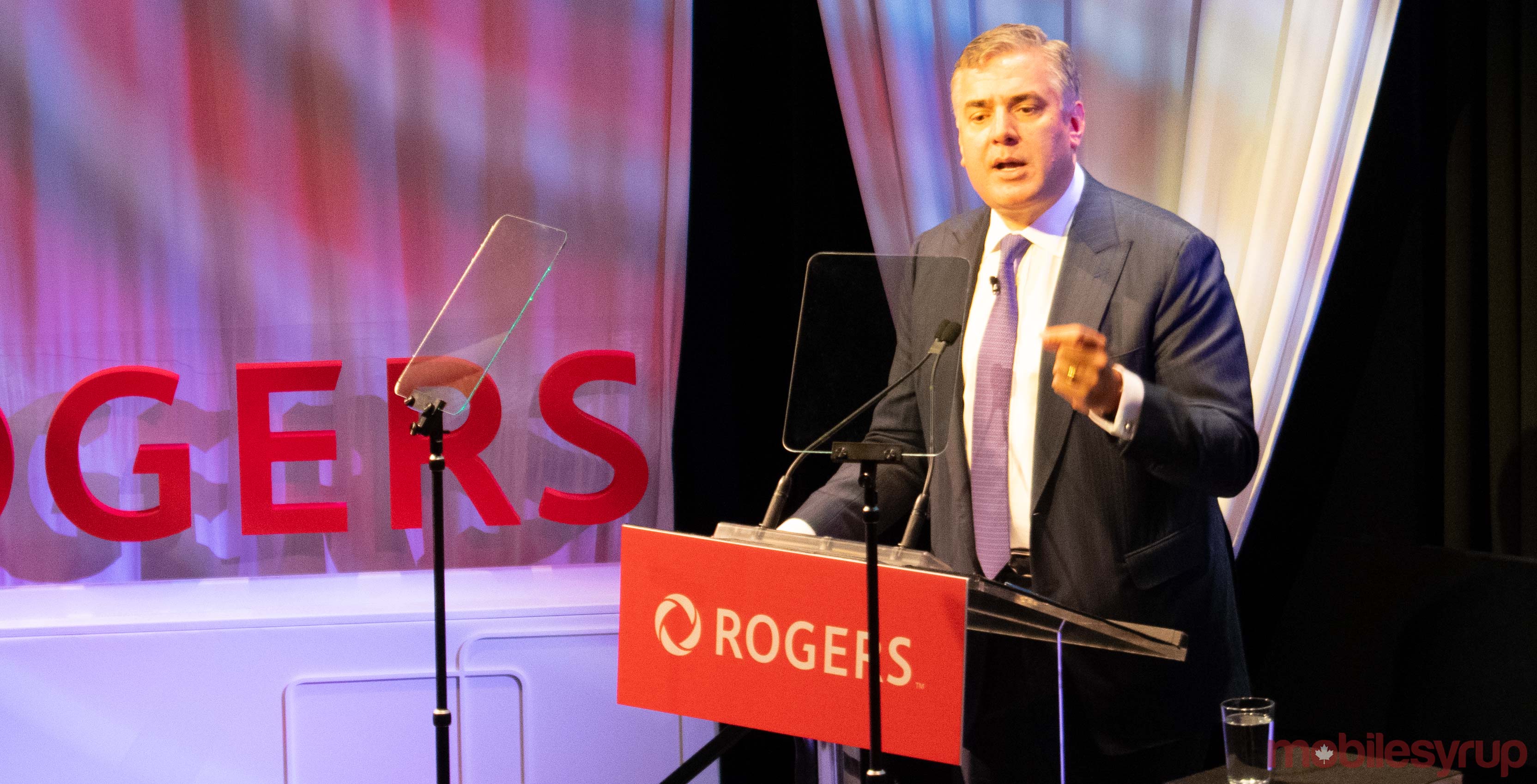
During the company’s annual general meeting, Rogers’ CEO Joe Natale urged the importance of the carrier’s relationship with the government and sent a strong signal to policymakers regarding the creation of regulation that “spurs growth and innovation.”
Natale said to investors, partners and employees of the company that as the country approaches the deployment of 5G network technology, it is incredibly important for carriers and the government to have a good relationship.
“This partnership is critical to our future. The race to 5G is not with other carriers, the race to 5G is with other countries and we want Canada to be the first,” he said on April 18th. “We’re doing our part to make sure that Canada is ready for 5G, we’re laying the tracks, building the foundation, but we can’t do it alone. We need the right regulations and partnership with the government.”
Rogers announced its Q1 2019 results the same day and Natale said that with Rogers’ recent investment in 600 MHz spectrum, the company is ready whenever 5G comes to Canada.
Rogers spent $1.7 billion CAD to nab 52 out of the 112 available licences.
“It is even more critical to invest and for Canada to invest given our sheer land and sparse population,” he said. “We need to spend more than any other G7 country to lead.”
He added that Canada needs to have “policy that spurs growth and innovation,” and policy that benefits businesses from economic opportunities.
He also added that Canada should look overseas for new policy ideas.
“Let’s look overseas. Take Europe for example. In some markets, the government backs companies that ride on the networks of other carriers, at a vastly discounted price. Companies who don’t invest in their country’s national infrastructure. This approach suppresses investment, it stifles innovation, and it sabotages network quality. In short, it stalls a nation’s economic prosperity. As we enter the world of 5G, it is more critical than ever, to invest. And it is more critical for Canada to invest given our sheer land mass and sparse population,” he said.
More recently, Rogers responded to the proposed policy directive that was announced by Innovation, Science and Economic Development Minister Navdeep Bains in February.
In its submission obtained by MobileSyrup, Rogers said the directive needs to include investment when the Canadian Radio-television and Telecommunications Commission (CRTC) makes its decisions. It added that the requirement to “continuously lower prices would lead to pricing below economic levels and undermine the government’s objective.”
The proposed policy directive requires the CRTC to consider “competition, affordability, consumer interest and innovation” when making decisions.
Bains told MobileSyrup the directive was made as a result of specific decisions relating to Wi-Fi first MVNOs. Bains said that after the first decision was sent back in 2017 and a second was released in 2018, “we felt it was a step in the right direction but more had to be done.”
“And that’s what prompted this policy directive. We want to really focus on the efforts around affordability. We also made it clear we want to see innovation and that innovation can be in many different forms so that’s up to the CRTC and how they want to look at the Wi-Fi first MVNO and other innovative solutions that have been provided.”
In a later interview, when asked about Rogers’ submission to the proposed directive, Bains said that anyone was welcome to submit thoughts and opinions and that was the purpose of the consultation period.
“There is transparency in this process and the idea of this process is to get different feedback and viewpoints and that will all be examined,” he said.
“But my agenda, my objective remains very clear that we need to make sure that consumers come first and it’s a consumer-driven initiative where we look at maintaining competition, choice and affordability,” Bains said.


